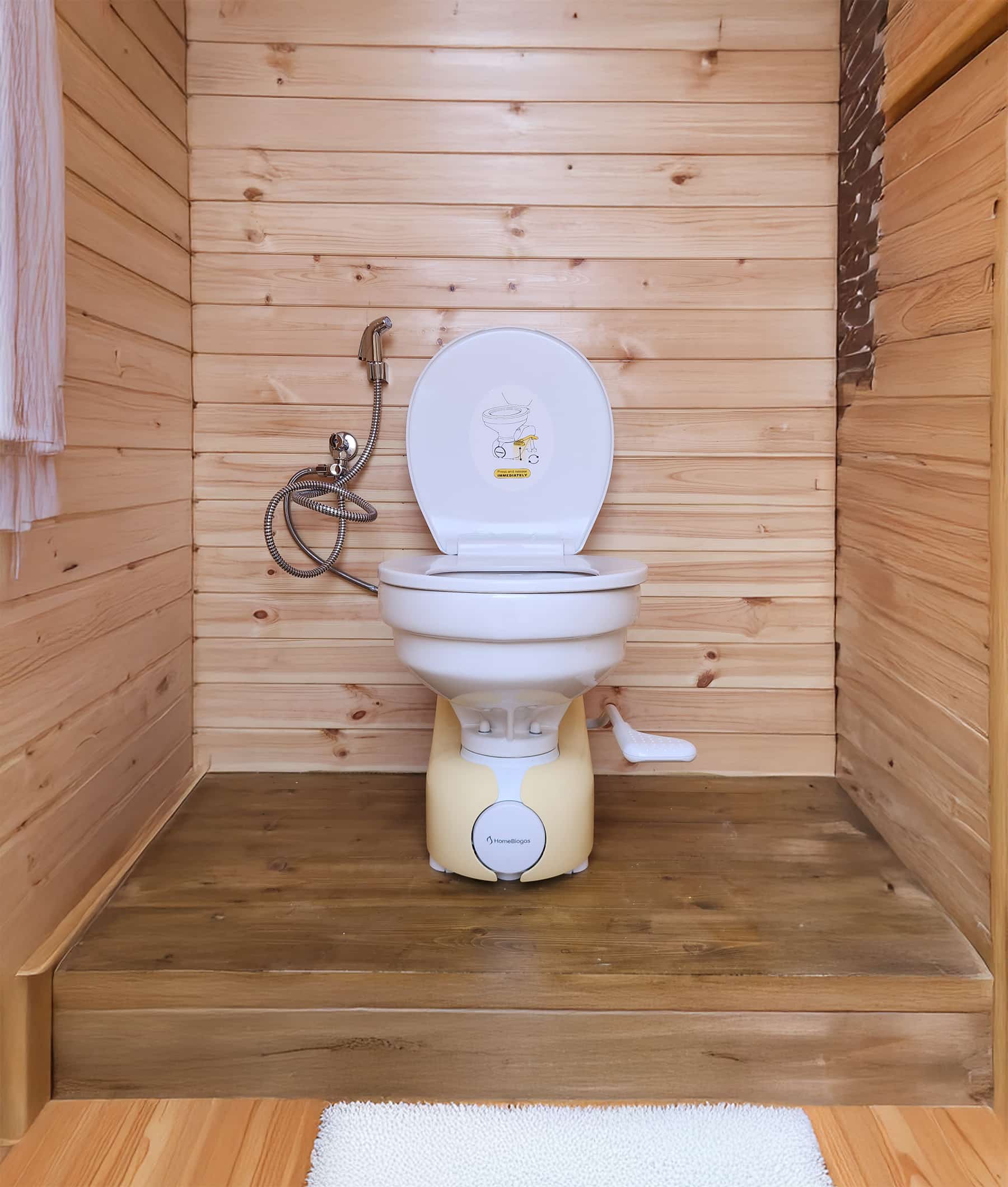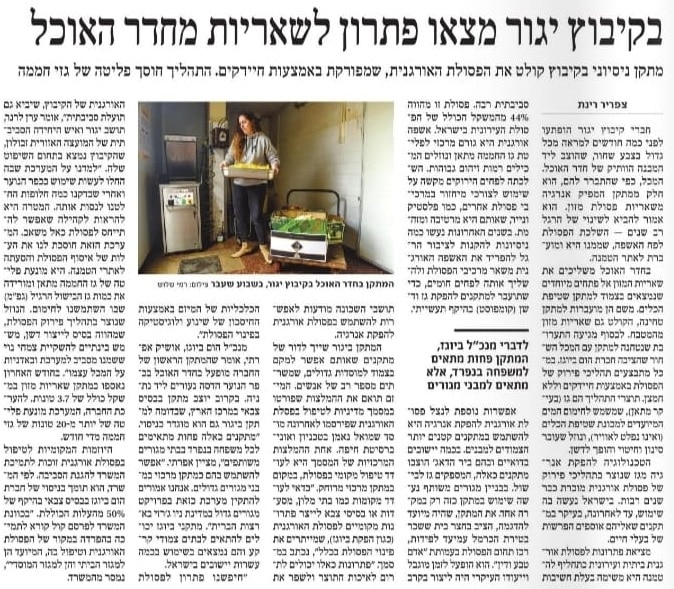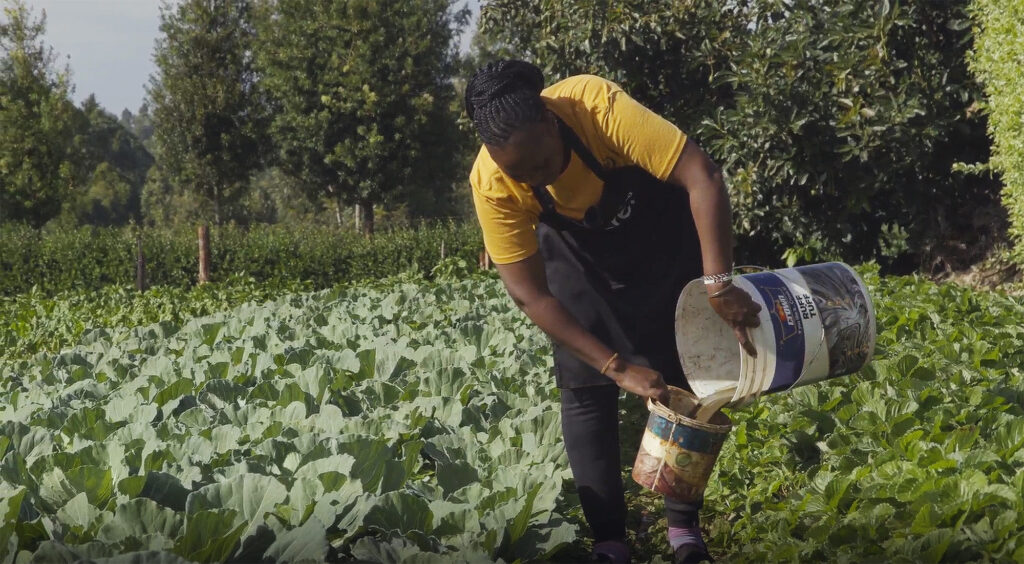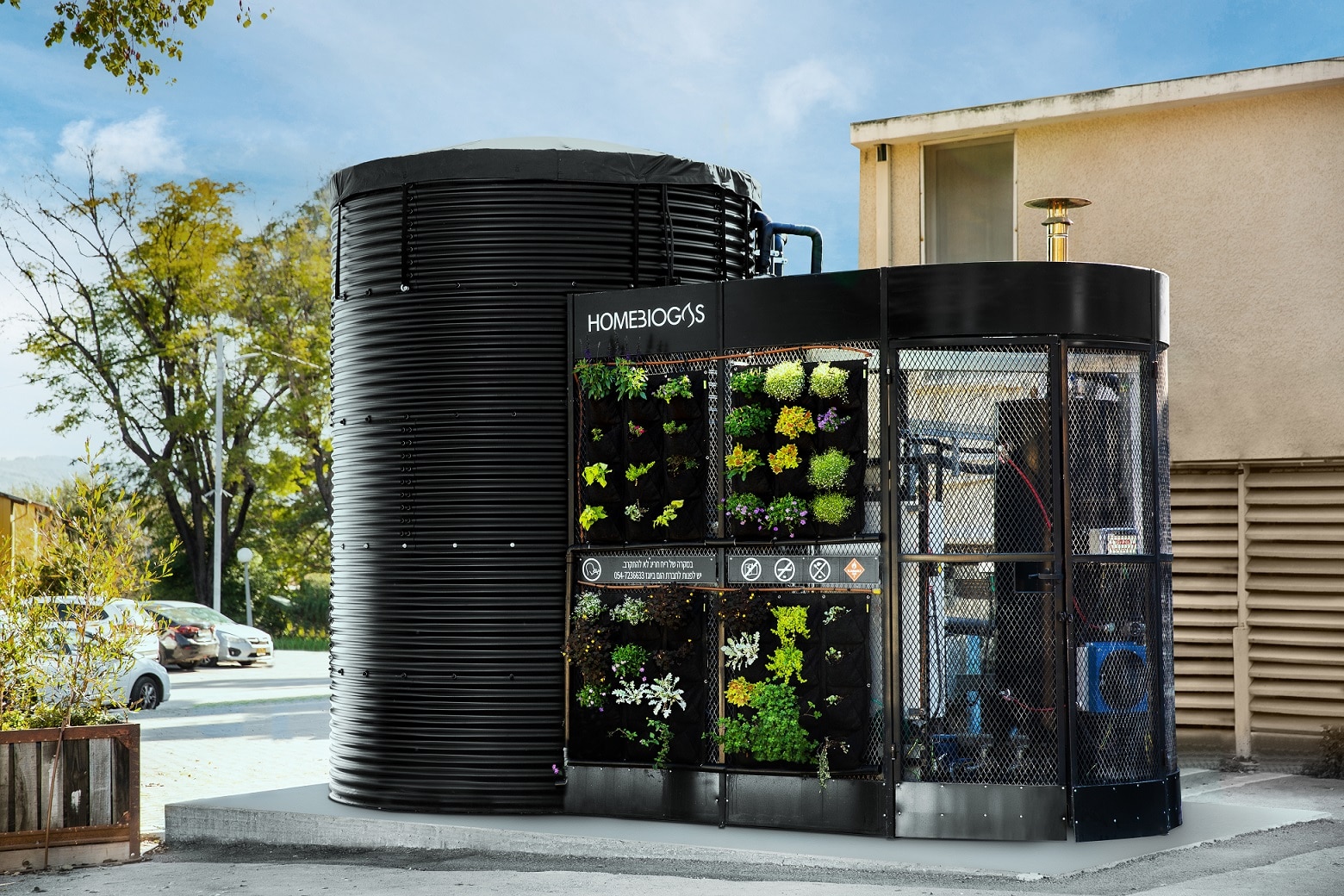
WHAT DO WE DO WITH THE DINING HALL’S LEFTOVERS?
Kibbutz Yagur’s found an answer that’s good for the environment!
Kibbutz Yagur members were surprised some months ago to see a large black container positioned next to their longtime dining hall. It turned out to be part of a system producing energy from food waste. It’s meant to bring about a change from the customary habit of many years: tossing food waste into the garbage bins from which it’s then taken to a landfill.
Inside the dining hall, leftover food is slid into special apertures adjacent to the dishwashing machine. From there, and from the kitchen, food waste goes to a grinding facility. The ground mixture then enters the black device set up by Home Biogas. Inside, waste is broken down by bacteria in the absence of oxygen. The outcome is gas, primarily methane, that can be used to heat water for the dishwasher rather than be emitted into the air. An additional liquid is also produced which is filtered, sterilized, and becomes fertilizer.
Finding solutions for home and commercial organic waste as an alternative to landfills is a mission of vital environmental importance. Accounting for 44% of total urban waste in Israel, organic matter is the primary source of the greenhouse gas, methane, and liquids containing high levels of pollutants. Throwing these materials into the green bins makes it harder to recycle other waste components such as plastic and paper, which organic waste moistens and pollutes. Recent years have seen exerted efforts at training the public to adopt the habit of separating organic waste from other forms and depositing organic materials in the brown bins, enabling these to be transferred to gas and compost producing facilities at an industrial scale.
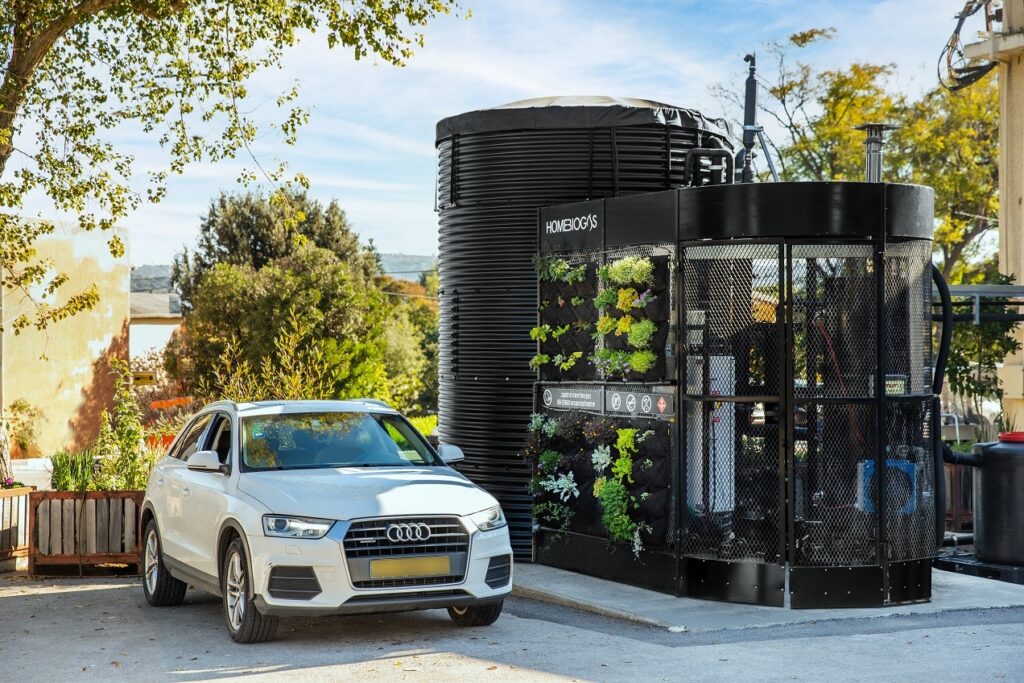
LOCALIZED ORGANIC WASTE SOLUTIONS
The device installed in Yagur belongs to a new generation of equipment which can be positioned adjacent to institutions serving a large number of people. This initiative comports with recommendations detailed in the policy paper on handling organic waste, recently published by the Samuel Neaman Institute for National Policy Research at the Technion and Haifa University. A primary recommendation appearing in the paper is to encourage localized waste handling rather than centralized, distanced operations.
“There is value in encouraging places such as hotels, restaurants and military bases to develop localized organic waste solutions (such as biogas production) which make waste evacuation unnecessary,” the paper states. “Such solutions can contribute to the product’s quality and improve the initiative’s economic benefits by saving on waste transportation and logistics.”
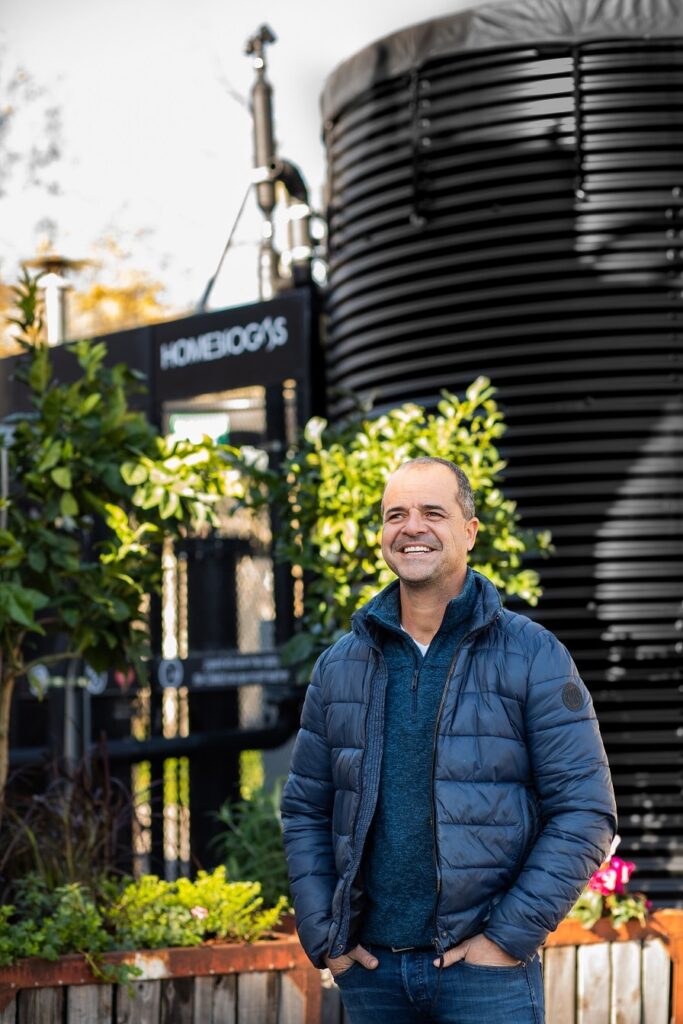
Oshik Efrati, HomeBiogas CEO : “Our first commercial system is being operated at the Hadassah Ne’urim Youth Village near Natanya, another will soon be set up in a central Israel military base. These solutions can also be used as a shared solution by large apartment blocks, we’re about to install one in a large residential project in New Jersey.”
“We looked for an organic waste solution for the kibbutz that would also be environmentally friendly,” says Eran Lerner, a Yagur resident and a member of the Regional Council Zevulun’s environmental unit, which has jurisdiction over Yagur. “We learned about the system after the Youth Village started using it, and once we’d checked various options, decided to try this one. The objective is to show the community that it’s possible to view waste as a resource.
Over the past month, 3.7 tons of food waste was collected. The company estimates that the system prevents the emission of more than 20 tons of greenhouse gases every month.
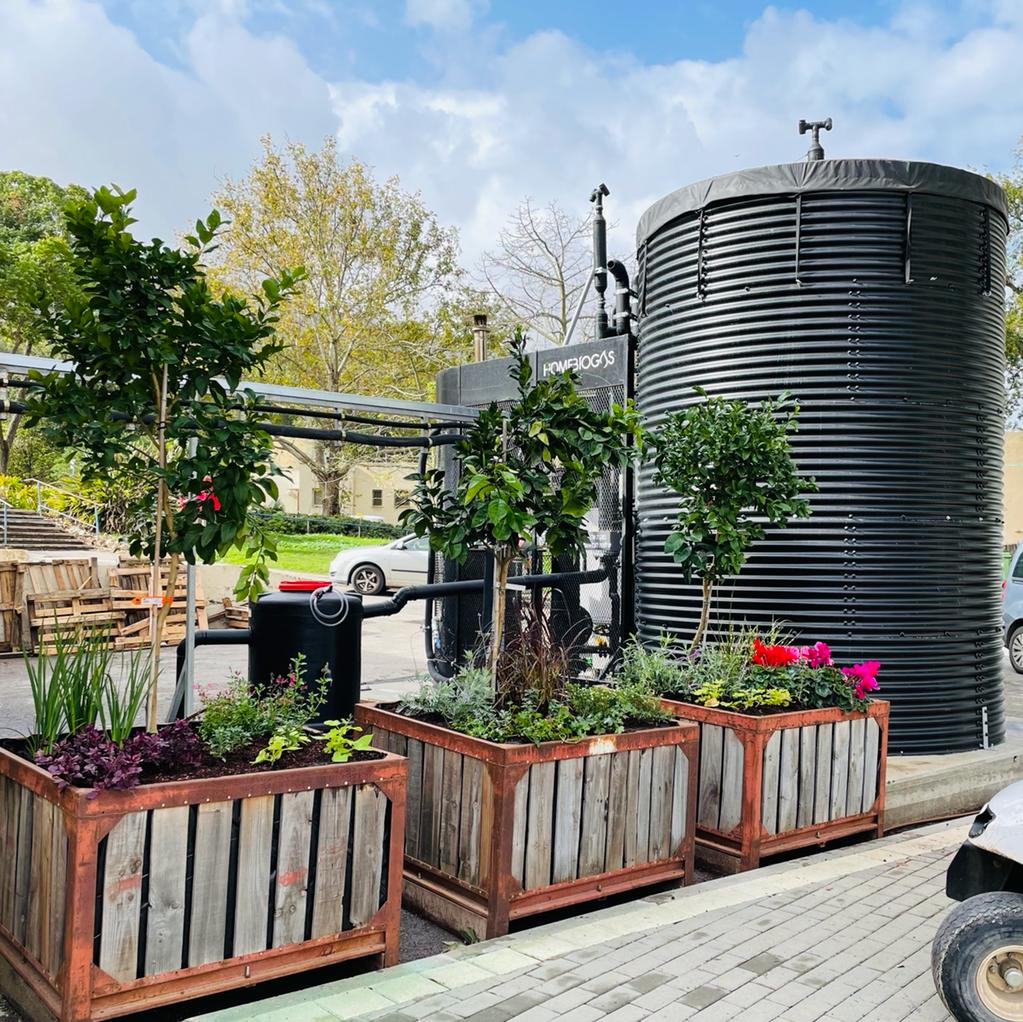
Eran Lerner, a Yagur resident and a member of the Regional Council Zevulun’s environmental unit: “The system saves us the cost of waste collection and transport to landfills. It also prevents the emission of methane, a greenhouse gas, and reduces the amount of regular gas (GPM) needed for heating. The liquid produced by the process of waste being broken down and which is the basis for fertilizer, is being used meanwhile to irrigate the plants we’ve positioned around the system and in planters on the container itself.”
The article was originally published in Haaretz in Hebrew in February 2022.

